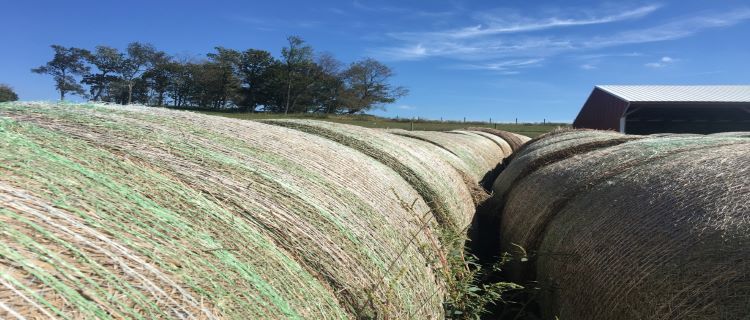Running a cow-calf operation is no small task for Bobby Maass on his 300-acre grass farm. A graduate of Eastern Kentucky University, Maass returned to Dinwiddie, where he pursued his career off the farm as well as growing his herd from 10 to 75 heifers. His operation is grass fed. He bales hay primarily for horses and only uses bales for his own herd when required by snowy, wet weather or when his obligations for his job keep him off the farm. Maass also participates in the Amelia Cattlemen Association’s Virginia Replacement Heifers Program, returning heifers to the home farm or market.
Key to the success of his operation is Maass’ use of biosolids. He touts both the economic and environmental benefits that are clear to the eye when touring the land. Lush, green grass across the land application of biosolids stops as soon as the buffers begin. Maass vouches for the significant cost savings in using biosolids – a significant help to the bottom line – as well as – the steadfast plant growth as the biosolids feed the plants overtime rather than a one-time output of nutrients.
“The regulations surrounding land application, “Maass says, “should be based on scientific evidence and research.”
Taking a look at his fields, you can clearly see the benefits of the use of land application –ensuring a steading supply of grass for his cattle and the bales of hay he raises for horses. The distinction is clear where the grass goes from a deep, lush blue green to sparse and struggling.
Maass’ priorities ring true; while he is busy managing the farm, his job, his family comes first — his wife and children, including raising his children on the farm. While he jokes that they were “social distancing before social distancing was cool,” he recognizes the true impact of COVID-19, especially on his and his wife’s jobs – not necessarily the daily operations of the farm.
Maass looks forward to utilizing biosolids as a tool to build and maintain his successful cow-calf operation, while providing and sustaining the land for his family.
